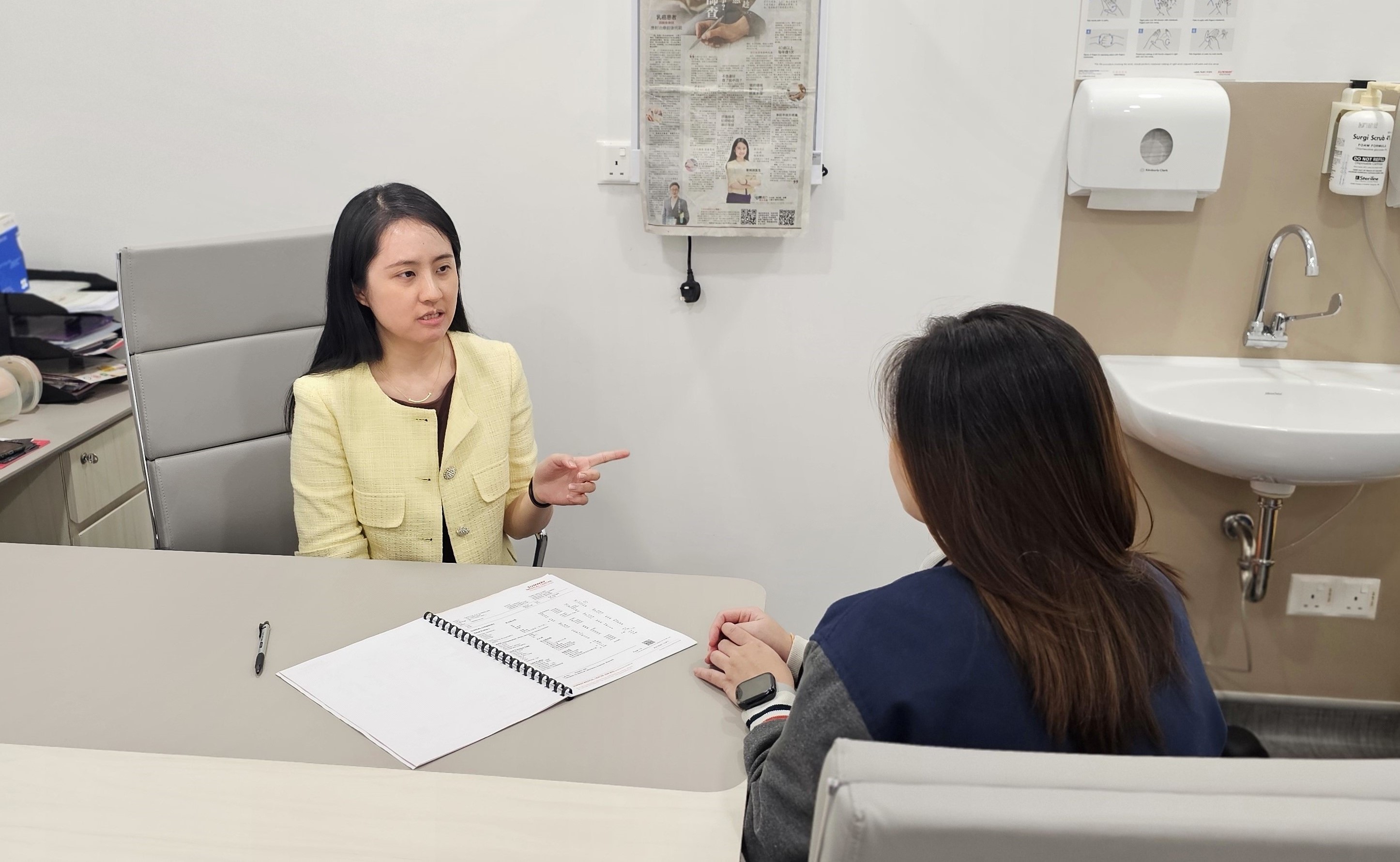Prevention Better Than Cure: Coffee Break with Dr Tong, Wellness Centre Doctor
26 September 2024
.jpg)
Health screening is key to catching potential health issues early and giving individuals the power to manage their own well-being. These check-ups are the first step in preventing serious health problems, often uncovering conditions before any symptoms appear.
This resonates deeply with Dr. Tong Wen Chee, whose journey to becoming a health screening medical officer is driven by a commitment to patient education and early disease detection. With a background in emergency medicine, Dr. Tong plays a crucial role in guiding individuals toward healthier futures, helping them navigate the complexities of health screenings and understand their personal health risks.
Currently serving as the resident Medical Officer at the Wellness Centre here at Sunway Medical Centre, Sunway City, Dr. Tong began her career at Hospital Klang before moving to Kuching Hospital, where she spent nearly three years in the emergency department. Although she enjoyed the fast-paced environment of emergency medicine, Dr. Tong transitioned to health screening in pursuit of a more stable career, particularly as she considered starting a family.
Stepping Into the Role of Health Screening
As a health screening doctor, Dr. Tong’s primary role is to detect any signs of abnormalities in patients who are generally considered healthy. "We aim to identify potential health issues before symptoms arise," she says. Early detection can often lead to better treatment options and improved outcomes, a key aspect of preventive medicine that Dr. Tong is passionate about.
Health screening, she points out, is not about diagnosing but rather identifying issues that warrant further investigation. "If we detect something that looks concerning, we refer the patient to specialists for further tests and treatments."
One of the toughest aspects of health screening, Dr. Tong admits, is breaking difficult news to patients who believe they are healthy. “It’s challenging when we find something serious, and we have to tell the patient to seek urgent follow-up without causing too much fear or anxiety,” she says. “Sometimes patients are shocked by the results, especially when it’s something they never expected.”
.jpg)
Her Most Rewarding Cases
One particularly striking case involved a 19-year-old woman who came for a routine health screening, not expecting to uncover anything serious. During the assessment, Dr. Tong recommended an abdominal ultrasound in addition to the usual blood and urine tests. The results were shocking: a 19 cm ovarian cyst was found. "The size was equivalent to being five months pregnant, but she had no symptoms," Dr. Tong says.
.jpg)
"It was a life-saving discovery. If it had ruptured, it would have been an emergency," she explains, emphasising the importance of vigilance even in seemingly healthy patients. The young woman, unaware of the potential dangers lurking within her body, expressed immense gratitude for the thoroughness of the screening process. "She couldn’t believe how fortunate she was to have come in for a check-up," Dr. Tong recalls, highlighting how vital these screenings can be.
Another memorable case involved a middle-aged man who came in for a routine check-up. His blood and urine tests were normal, but during a physical exam, Dr. Tong detected a small lump in his neck, which was later diagnosed as stage 2 thyroid cancer. "Without that physical check, it could have gone unnoticed," she explains.
What made this case particularly rewarding was when the patient returned to express his gratitude. "He came back to thank me, saying that if it weren't for that routine check, the cancer would have worsened," Dr. Tong recalls. "It’s moments like these that remind me of the importance of what we do in health screening. It’s not just about tests; it’s about early detection."
The Importance of Health Screening
Dr. Tong strongly advocates for regular health screenings, regardless of age or perceived health. "Even people in their 20s should consider screenings. You don’t always need symptoms to have something wrong," she advises. "After 40, yearly screenings are ideal, but even younger people should get checked every two years." In her role, Dr. Tong emphasises the importance of four essential tests that everyone should consider. “It’s my habit to recommend that anyone coming for a health screening, if financially affordable, undergo four tests every year—blood, urine, chest X-ray, and abdominal ultrasound—regardless of age or gender,” she advises.
Balancing Work and Personal Lives
For Dr. Tong, achieving a healthy work-life balance was a significant factor in her decision to transition from emergency medicine to health screening. "Emergency work requires a lot of shifts, on-calls, and weekend duties," she explains. "I wanted something more stable, and health screening provided that balance."
This stability not only allows her to manage her professional responsibilities but also enables her to focus on her personal life as she considers starting a family. "Being able to have predictable hours means I can plan my days and spend quality time with loved ones," Dr. Tong notes.

Her Advice for Aspiring Doctors
For those considering a career in health screening, Dr. Tong emphasises that specialisation isn’t a prerequisite for success in this field. "Many medical students think they need to specialise, but you can have a fulfilling career in health screening without that. It’s a different path, but it’s equally impactful," she explains.
Dr. Tong believes that health screening offers a unique opportunity to make a difference in patients' lives by focusing on prevention. "In health screening, we have the chance to educate individuals about their health before they encounter serious issues. This proactive approach is incredibly rewarding," she adds.
Thank you, Dr. Tong, for your invaluable contributions to the health screening department. To learn more about our health screening services or to book a health check-up, feel free to make an appointment at our Wellness Centre.
Back




